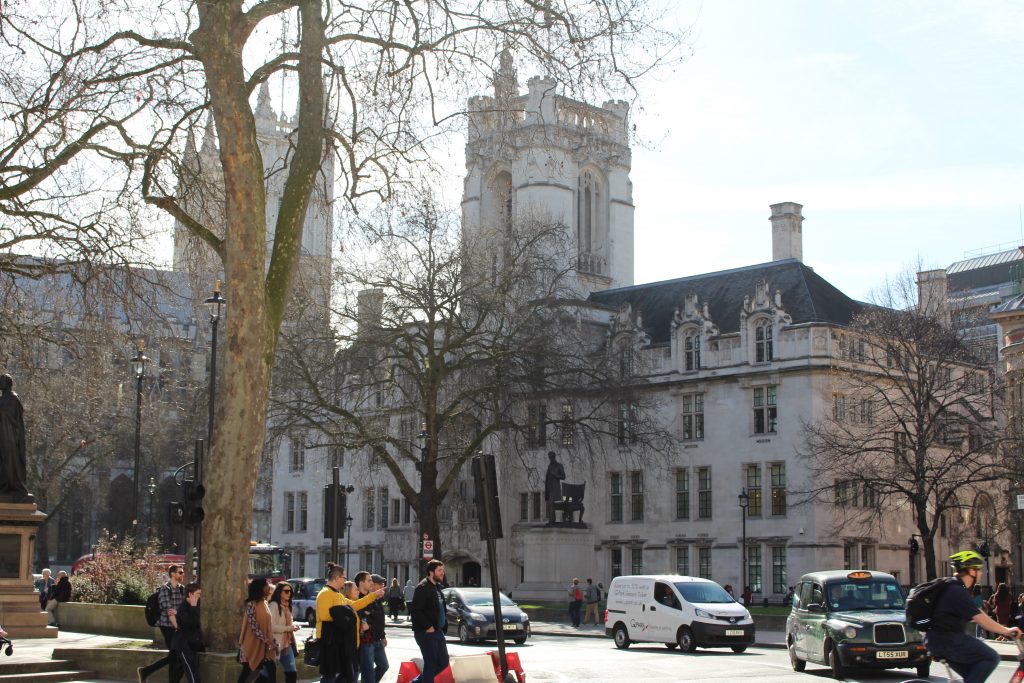Hundreds of thousands of disabled and ill people in the UK are being detained unlawfully in care homes and hospitals, according to a new report by the Law Commission.
Under Article 5 of the Human Rights Convention everyone has a right to liberty, apart from in specific cases set out by the law. For example, people with dementia or learning disabilities may be kept in a care home, despite them not having the mental capacity to agree.
The Law Commission, however, claims proper processes and checks are not being carried out in many cases.
The universal right to liberty

“Historically, people who lack capacity, or who are regarded as lacking capacity, haven’t been regarded as having the same rights as everyone else,” Dr Lucy Series, a Research Associate at Cardiff Law and Politics School, tells RightsInfo.
She explains people can be detained in a “wide range” of circumstances – this includes people in psychiatric hospitals, those having surgery they don’t want, or those in care homes or some types of supported living.
However, she says there is now a “growing awareness” that everyone should have the same rights – including the right to liberty. In plain English this can be as simple as “deciding where to live, when we get up in the morning or what to eat for breakfast.”
There are often valid reasons for depriving a person of their liberty – for example, a dementia patient may be kept in their care home to stop them wandering off and getting into a dangerous situation. However, it is important that there are checks in place when this happens to stop abuses of the system.
Imagine your local authority comes along and decides you have to live in a care home and you can no longer see your loved ones. When things are being done to people without their consent, it raises questions.
Currently the Deprivation of Liberty Safeguards (DoLS) is the system that does this, but the Law Commission has found that local authorities are swamped with applications after a recent change in the law.
A landmark case

The Cheshire West case in 2014 was a landmark ruling by the Supreme Court which changed the way we viewed the human rights of people with disabilities. It solidified the principle that disabled people are entitled to the same human rights, and that there must be proper justification if these rights are removed.
It also widened the definition of people who are subject to the Deprivation of Liberty Safeguards, as well as stressing the importance of regular reviews regarding the appropriateness of any restrictions.
While the Equality and Human Rights Commission welcomed the ruling, this change has put a lot of pressure on local authorities, who deal with safeguarding. All in all 100,000 people who required an assessment last year did not receive one due to the backlog. That is why the Government instructed the Law Commission to look into the system.
A new way of doing things

The Law Commission has now come back with a proposal to change the system. The new system would replace the Deprivation of Liberty Safeguards with something called Liberty Protection Safeguards.
The plans aim to “simplify” the assessment of a person’s best interest. For example, this would mean allowing previous assessments made in care plans to be used instead of requiring six new assessments for each patient. The report also claims it would give “greater prominence” to human rights when initially planning care.
Law Commissioner, Nicolas Paines QC, adds:
It’s not right that people with dementia and learning disabilities are being denied their freedoms unlawfully. There are unnecessary costs and backlogs at every turn, and all too often family members are left without the support they need.
However, not everyone agrees with the proposals, specifically areas in the report which mean someone being cared for at home by family could be classed as deprived of liberty.
It will now be scrutinised by the Government, who will decide whether to enact the plans. Regardless of the outcome, the report is certain to have wide implications on how we uphold the right to liberty of disabled people.
Want to know more about this?
- Read more on the right to liberty and security of person on our infographic
- See the full report of the Law Commission’s recommendations
- Take a look at our summary of the Cheshire West Case
Subscribe to RightsInfo and follow us on Facebook and Twitter for more human rights news, views and information.







